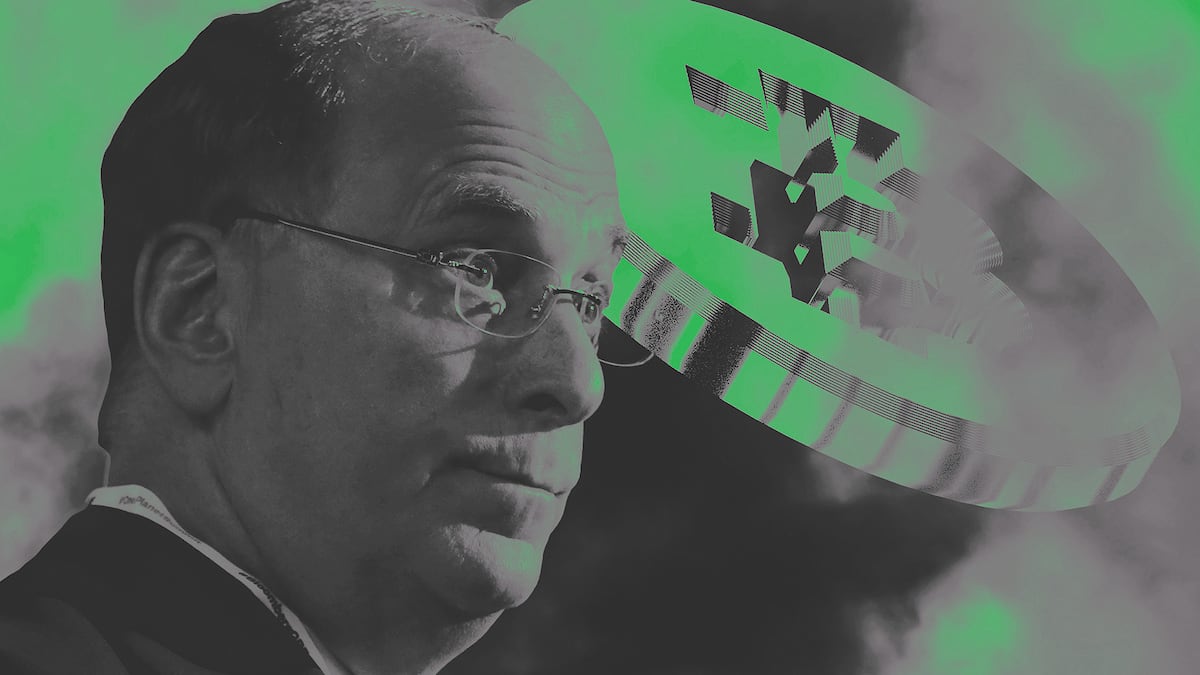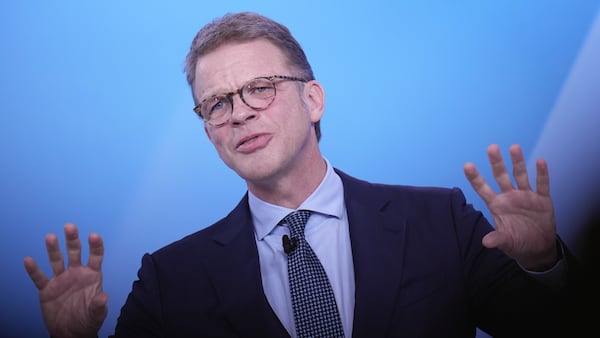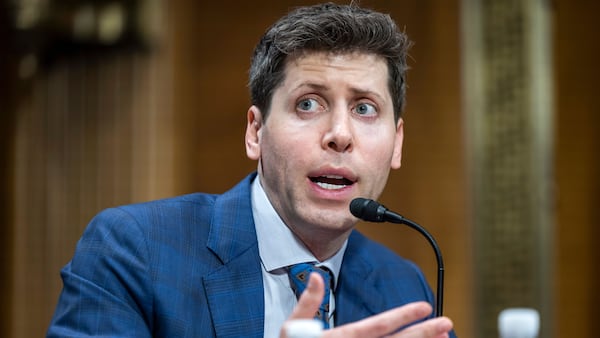- Joseph Chalom says institutions won’t embrace DeFi fully until there’s widespread adoption of know-your-customer practices.
- TradFi pros debate the pace of putting stocks and bonds on-chain at Coinbase conference.
- Wall Street making moves into crypto despite SEC crackdown.
The tokenisation of stocks, bonds and other traditional assets, will happen, but it will be “slower than people expect,” BlackRock’s Joseph Chalom told an auditorium of finance professionals on Thursday.
Chalom, the head of Strategic Ecosystem Partnerships at the biggest asset management firm in the world, struck a sober counterpoint to the enthusiasm at a Coinbase crypto summit in New York.
Exponential
Indeed, the fellow pros on his panel discussion predicted a speedy merger of DeFi and TradFi.
“It does feel like we’re having a gradually-then-suddenly moment,” said Greg Tusar, the head of institutional products at Coinbase.
“The pace of change is exponential,” chimed in Roger Bayston, Franklin Templeton’s head of digital assets.
Institutional adoption
Chalom listened to his fellow investment veterans but emphasised that true institutional adoption of blockchain technology won’t happen until know-your-customer and anti-money laundering practices are accepted and implemented acrossDeFi.
“I think it’s going to be hard for large, regulated institutions, no matter what liquidity is available, to participate without these blockers,” Chalom said. “All I know is, we go to jail if we don’t know who we’re trading with.”
NOW READ: Blockchain image problem: Polygon Labs’ Rebecca Rettig hits back at sceptics
The debate came at a febrile moment in the evolution of crypto. For all of the anxiety stemming from the US Securities and Exchange Commission’s muscular clampdown on the crypto industry, Wall Street is marching forward with myriad plans in the sector. BlackRock wants to release a spot Bitcoin ETF; Fidelity has launched its own crypto marketplace business; and Franklin Templeton, WisdomTree and other bold-faced names on Wall Street are acting as if crypto is here to stay.
Buyers and sellers
Naysayers fault DeFi for its novel approach to matching buyers and sellers, Chalom noted. But that isn’t the real obstacle to mass adoption.
“That is just a fig leaf. We need a clear understanding of who is in a pool.”
To that end, Chalom pointed to the recently-announced Uniswap v4. The forthcoming version of Uniswap, crypto’s biggest decentralised exchange, will effectively allow developers to build their own exchanges on top of Uniswap.
“You may have seen our friends at Uniswap launch version four. If you read carefully, there’s almost an ability to create a permissioned pool, a permissioned contract, with a group of people,” Chalom said. “That’s a step forward.”
NOW READ: ‘I expect this to move quickly:’ New UK crypto laws could be in place by autumn
But KYC and AML practices are anathema to many of the developers working on blockchain technology. Bitcoin was built to offer people a way to transact without banks and other rent-seeking middlemen. That crypto is “permissionless” — that anyone, anywhere can use it — is considered a feature, rather than a bug, among the technology’s true believers.
It’s not lost on the financiers looking to elbow their way into the crypto economy.
“I think blockchain … is something that excites us, because if we can continue to shrink the rent-seekers in the middle, that allows better outcomes, i.e. better returns for clients in the long term, and that’s what our single focus is,” Bayston said.
‘There’s probably a whole bunch of us in this room. Raise your hand if you’re a rent-seeker.’
— Roger Bayston
But he didn’t take the bait when asked to give an example of rent-seeking middlemen.
“There’s probably a whole bunch of us in this room,” Bayston said. “Raise your hand if you’re a rent-seeker!”
If there was one thing everyone could agree on, it was the staying power of crypto. Chalom predicted it would eventually have a “monumental” impact on the world of finance. Fadi Massih, a vice president and senior analyst at Moody’s Investor Service, agreed.
Real money on the line
“In 2023, when you talk about Bitcoin, crypto, digital assets, we’re beyond curiosity,” Massih told DL News. “This is real money on the line.”
This month, Moody’s dropped Coinbase’s outlook from “stable” to “negative,” citing the SEC’s lawsuit. But it affirmed Coinbase’s credit rating.
Credit ratings present Moody’s long-term view of a company, Massih said. Coinbase is on steady financial footing, he said, given its recent restructuring, its cash reserves, and its revenue.
NOW READ: Congress clashes with SEC over probe into FTX boss Sam Bankman-Fried
“Something that happens in one month typically doesn’t change creditworthiness that quickly,” he said. “We’ve always baked into the analysis the regulatory pressure.”
That pressure was a through-line at the conference — officially, the Coinbase State of Crypto Summit in partnership with the FT — whose attendees predicted a gold rush in the event US regulators provide clear rules of the road.
The uncertainty
The world’s largest asset managers won’t invest in businesses that may be slapped with an SEC lawsuit, said Heslin Kim, head of growth at Republic Crypto.
“It’s a hiatus period, because of the uncertainty,” he told DL News. “The Vanguards, the Fidelitys, the sovereign wealth funds of the world, they’ve got all this capital that’s still sitting on the sidelines, waiting to get involved.”
Have a tip about TradFi and DeFi? Contact the author at aleks@dlnews.com.





